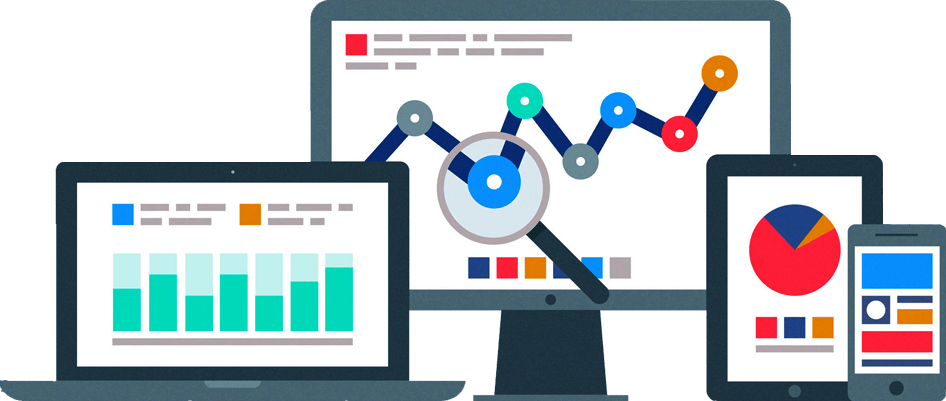Is your website killing sales? Find out how a website audit benefits your business.
Getting a website up and running is relatively easy nowadays. With over 1 billion sites on the web today (Internet Live Stats), it’s safe to say that virtually every active business has one.
Yet, when I talk to owners, salespeople and marketing directors at B2B companies about conducting a website audit — especially businesses with complex products or services and long sales pipelines — I hear comments like, I don’t need that…nobody uses our site, or we don’t use our website…that’s not how we sell.
So, I ask them, why do you have a website? Your website should be a powerful tool for new business generation, lead nurturing and revenue. When you say the website isn’t working or nobody uses it, what you’re really saying is that you invested time and money into a tool with very little ROI, and that you’re not sure why it’s not working harder to bring in business.
Your website could be underperforming for a variety of reasons. And you may not even know exactly what’s wrong.
And while it may seem simple to run a quick website audit, do you know where to begin once you’ve diagnosed the problem?
There are many factors that go into fixing (and building) a great website, so it’s not enough to rely on the expertise of your techy nephew who built the site 5 years ago and hasn’t touched it since. And be careful if you’re talking to a web developer/IT guru, if they’re focused solely on SEO or technical aspects.
Rather than dismiss the problem, it’s more effective to conduct a comprehensive website audit to measure your website’s performance against additional criteria.
What is a website audit?
A website is a lot like your car’s engine. It drives your business forward. But without proper service or inspection, it can deteriorate or break down. And like your vehicle, catching and fixing problems early saves on expensive repairs and ensures optimal performance.
Think of a website audit as a thorough inspection of your website and how well it’s functioning.
Many website audits focus solely on SEO (search engine optimization) and off-page technical factors. It makes sense. If your business can’t be found by search engines, you’ll never build the traffic you need to attract prospects and customers.
While it’s true that SEO is a critical component of a website, we can’t forget that websites are built for users — your living and breathing prospective customers.
That means the best website audits should cover 5 key areas: technical code, visual design, usability, copy/messaging, and SEO.
To get the best performance, or in this case, ROI, your website should be the hub of a marketing and sales system that works in sync with brand elements, email, social media, copy/content and sales processes.
Can a website audit benefit my business?
If you hear the word ‘audit’, don’t panic. A website audit is good thing. A thorough review of your website provides clarity and focus on what’s working on your site today, where it falls short, and what steps you can take to improve your site, rank higher, and generate more leads.
If done correctly, a website audit should help you identify:
• Why you’re not getting traffic to the site
• Why prospects aren’t taking action once they’re on the site
• The interaction between your prospect and content, visual design and navigation
• Site performance issues
• Ways to align your sales, marketing and customer service processes
Once problem areas have been identified, you’ll also be able to better isolate solutions and understand which changes can have the most effect on improving your bottom-line.
Still not sure you need to fix your website? Here are 3 reasons why a website audit benefits your business…
#1: Attract Prospective Customers
If you’re a B2B business, you expect your website to bring in customers and make money. Simple, right?
After all, you didn’t put up a site just to have it serve as a fancy electronic brochure.
But once you launched the site, does anyone in the company visit it regularly? Does anyone refresh it with new content, fresh images or updated contact information?
Or, are you so used to the website the way it is, that it’s easy to overlook or diminish any problems a user might have?
If your website isn’t prospect friendly, you could be losing out on potential business.
This includes some very common (and costly) website problems and issues that can be identified quickly through a website audit:
Poor or outdated design. Let me guess. Your site is circa 2009-2013. Maybe a header on the home page, an about page with a stiff corporate value and mission statement. Logo, color, and images that haven’t been updated— with uninspired copy full of jargon and business speak. Remember, you have less than 3 seconds to capture attention. First impressions matter.
No analytics. If you don’t have a way of measuring who is coming to your site, where they’re going and what kinds of information they’re looking for, then you can’t tell me that “nobody is using the website.” At a minimum, install Google Analytics. It’s free and will give you baseline site traffic information.
Poorly organized navigation. Ever go to a site and get so lost trying to find simple information about a product or service? Your prospects came to your site looking for specific information. Reward them with a clear path, an easy way in and through the site.
No contact information. Your website is the wrong place to play hard to get. If you want customers to find you, make sure that, at a minimum, your address, phone number, hours of operation and a way to contact you via email are easily accessible on your site.
Broken links. There are two big problems with broken links. First, search engines penalize you for not keeping your site current. And more importantly, users become frustrated and it undermines your credibility. A website audit will easily identify and catch broken links that can be removed or modified.
No mobile version. More users now access the Internet from mobile devices than desktop computers. In late 2016, the combined traffic for mobile and tablet devices tipped the balance at 51.2% vs 48.7% for desktop access (StatCounter, 2016). If your site doesn’t have a mobile first approach, you are losing out on potential customers. Don’t make your visitors pinch and stretch to read your information. They’ll quickly lose patience and move on.
#2: You’ll Create Stronger Content
What’s the point of creating useful or relevant copy and content if your target audience won’t (or can’t) find it?
It used to be that search engines rewarded keyword rich content with top rankings. But that’s not necessarily true anymore. Today’s search engines are more focused on serving up the best content overall, which means they’re taking much more than word count or the number of times you use the keyword into consideration.
Again, a website audit must touch on SEO improvement needed areas for better search engine indexing. But, search engines and people keep coming back to your website because of the quality of the copy and content you offer.
Remember, your visitors are coming to your site with fresh eyes. Is the site outdated? Does it work on mobile devices? Do you quickly engage visitors and validate that they’re in the right place? Do you tell them very quickly how you’ll solve their problems (and not talk about yourself)? Do you make it easy for them to find what they came to your site for in the first place?
If it’s done right, an external website audit analyzes the website copy, images, videos, forms, tone, voice, headlines, calls-to-action and service offerings from a user-centered perspective as well as an SEO perspective.
Auditing your content (in conjunction with analytics) helps you understand what kind of information visitors are looking for, how they find it, which types of content they like and most importantly, how they act upon that information.
Once you have this information, it’s much easier to create a solid content strategy for your website and blog that focuses specifically on what your prospective clients want. And the good news? Better content leads to better organic rankings with search engines.
#3: Your Website Works as a Sales Tool
If 67% of a buyer’s journey is now done digitally (Sirius Decisions Summit, 2015), your website is a critical tool at any stage in the buyer’s journey. That doesn’t mean your website replaces the relationships your company has worked hard to build and nurture. Those interactions should never go away.
But what it does mean is that today’s buyer simply does not rely on salespeople like they once did. The way your prospects analyze problems, evaluate solutions and make purchases has changed drasitcally over the last 5 years.
Why does this matter to your business?
Assuming expert studies are correct and many B2B websites today are ineffective for today’s customer, your salesperson should not be threated by a website audit or website redesign. Yes, salespeople absolutely do matter. Your business isn’t replacing face-to-face selling and the people that are great at it. Rather, it’s a ‘both-and’ world, meaning the website is a necessary tool to augment your sales and customer service arsenal.
The key to success, however, is to use the website as a hub from which you build and align effective marketing, lead generation, lead management and sales proccesses towards a single goal — the creation of predictable, sustainable and scalable growth.
ROI is why you’re in business. If your website isn’t helping to turn visitors into customers, there’s no point. A website audit provides the clarity you need to build a hard-working website that not only generates leads, but provides critical (and relevant) information to prospects when and where they’re looking for it.


